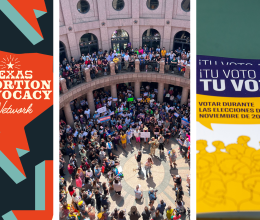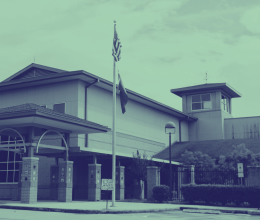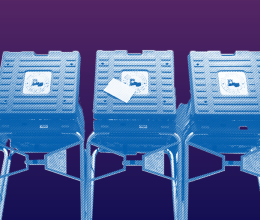
Here’s something we don’t get to say every year: We defeated the State of Texas’ attack on voting rights this legislative session.
Over the past decade, Texas lawmakers have attempted to pummel voting rights and election access. Whether it’s passing voter suppression bills or drawing redistricting maps that dilute voting strength within marginalized communities, it seems that many at the Texas Capitol would stop at nothing to make it harder for Texans to vote.
The first attempt at voter suppression during the legislature was through Senate Bill 9, an omnibus bill that contained dozens of unique provisions seeking to severely limit Texans’ right to vote. The bill’s language created egregious criminal penalties for voters who incorrectly fill out a voter registration form, unnecessary barriers for curbside voting and common-sense voter assistance measures, provisions that would have allowed for fewer voting locations in low-income communities, and measures to allow the State Attorney General unprecedented access to voter databases.
After SB 9 moved quickly through the Senate, advocates and allies worked together to influence the House Elections Committee and educate members of both parties about how bad the bill was. In May, a hearing was held with more than 200 Texans registered to speak against the bill. After a long delay on the House floor, the hearing resumed and met until well after midnight, with advocates staying up to protest the legislation.
Ultimately, our voices were heard; House members were able to stop the legislation from moving forward. Amendments to other voting bills in the final days of the session that attempted to include provisions of SB 9 were also defeated, resulting in one of the more impressive victories for advocates of election reform at the Texas Legislature.
While the Texas House stopped Senate Bill 9, the Texas Senate had its own major voting rights victory. The Senate rejected the Governor’s nomination of acting Secretary of State David Whitley following his botched voter purge attempt. The session-long opposition by some Senate members was a critical effort, one bolstered by the outcry of allies in support of the efforts to stop Whitley's confirmation.
Finally, the Texas Legislature began important preparation for the redistricting process that will begin in January 2021. Discussions surrounding reforms to the process and ideas for an independent redistricting commission began in earnest this session and will continue into the interim when the Texas House Committee on Redistricting is expected to host more than a dozen hearings across the state.
Going into the 2020 election, people across Texas must stay vigilant and stand against any voter suppression efforts in local communities. At the very least, this session we have reason to celebrate the defeat of a misguided Secretary of State nominee and what could have been the most harmful voter suppression legislation in Texas history.





